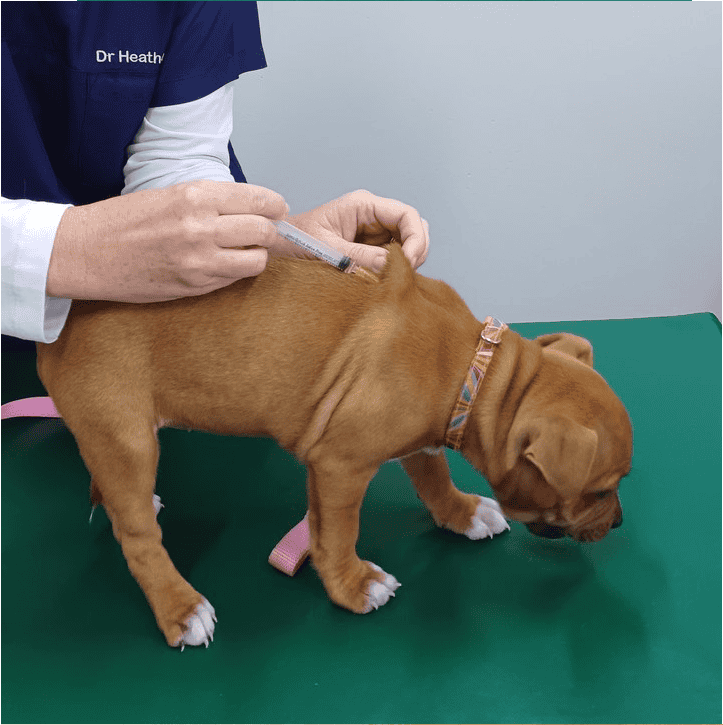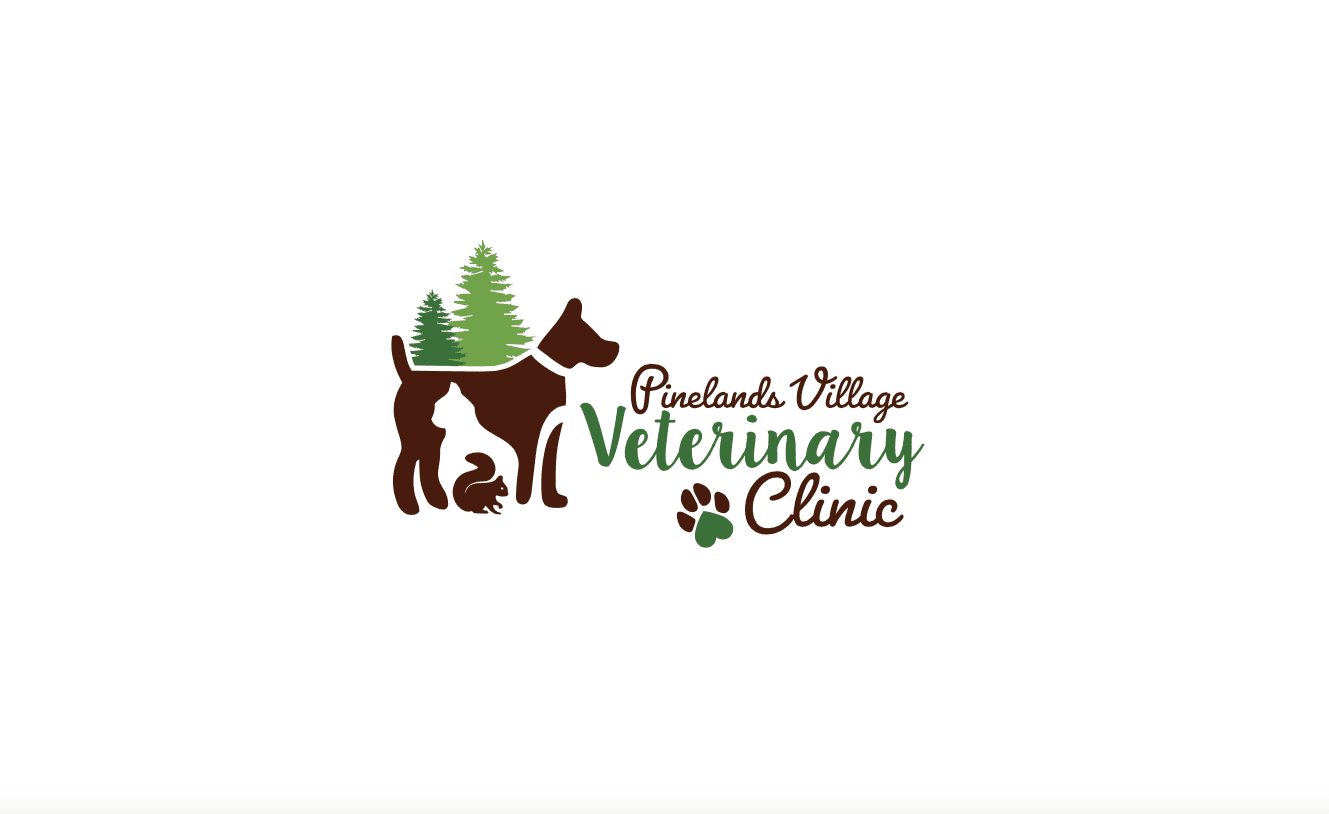Prevention is Better than Cure
Everyone knows that it is advised that babies get vaccinated against certain diseases, and that they receive booster vaccinations as they get older. And many people are vaccinated against other diseases later in life as well, with flu shots, tetanus shots and of course recently, the COVID vaccination.
Puppies and kittens also need vaccinations when they are young and repeat vaccinations as they get older. These vaccinations take place over several months when animals are young and then need to be repeated every one to three years, depending on the vaccine. This might sound like something that needn’t be a priority. However, these vaccinations can prevent your pets from contracting dangerous, potentially deadly diseases that are preventable.

DOGS:
Puppies can get their first set of 5-in-1 vaccinations at six to eight weeks old. Recent guidelines from the World Small Animal Veterinary Association advise repeating the vaccine every 3 to 4 weeks until 16 weeks, and then doing a final “puppy” vaccination at 6 months old. Thereafter, vaccinations are recommended every one to three years, depending on the disease against which one is vaccinating.
What’s in the 5-in-1 Vaccination?
The standard 5-in-1 vaccinations are vaccinations that are given to puppies in a few rounds over the first 6 months. These vaccinations cover: Canine distemper, Parainfluenza, Parvovirus, Infectious Hepatitis and Adenovirus type 2.
Distemper is prevalent in South Africa and can be almost impossible to cure. If the pup survives distemper, it often has residual neurological signs lifelong. It is a viral infection that causes respiratory and neurological problems. It spreads through dogs’ bodily fluids or direct contact with an infected animal. The best way to prevent it spreading is to vaccinate dogs to help provide herd immunity.
Parainfluenza is a virus that causes respiratory problems. It spreads quickly through coughing and sneezing in areas with lots of dogs.
Parvovirus is a viral disease that causes severe vomiting, often foul-smelling, haemorrhagic diarrhoea, fever and dehydration. It is particularly fatal to puppies, and certain breeds are more susceptible to the disease e.g. Rottweilers, Dachshunds and German Shepherds. It is transmitted through contact with infected dogs or their faeces. Dogs can have the virus without showing symptoms and pass it on through their faeces. (One reason why it is important to pick up after your dog in public places). Treatment is usually intensive, and expensive.
Hepatitis and Adenovirus are viral infections and both cause liver and respiratory issues. They are contracted through direct or indirect contact with infected animals.
All these viruses are highly contagious, but easily preventable with the vaccinations, which are recommended to be done every 3 years, once they are adults.
There are also a couple of optional vaccinations available: kennel cough and leptospirosis. Kennel cough is usually caused by a complex of viruses and bacteria and is highly contagious. It is commonly spread in areas frequented by high numbers of dogs. Dog kennels, doggy daycare, and parks are areas where this disease can be commonly spread. Most dog day cares and boarding kennels, if not all, will insist on your dog being vaccinated against kennel cough. This is an annual vaccine.
Leptospirosis is a bacterial infection that causes liver and kidney damage and can also be passed on to humans (a zoonosis). It is often found where there is stagnant water, or in areas where rodents are common (which may be in your backyard/garden!). It is transmitted through contaminated water or the urine of infected animals. If you live in an area where there are large bodies of standing or stagnant water, or you are aware of rodents around your property, it is recommended to get this vaccine for your dogs. This is an annual vaccine.

CATS:
Kittens can get their first standard 3-in-1 vaccinations at seven to eight weeks old. The vaccinations are then repeated every three to four weeks until 16 weeks old. After that, the 3-in-1 and rabies vaccinations are recommended every one to three years.
What is the 3-in-1 Vaccinations?
The standard 3-in-1 vaccinations cover panleukopenia, rhinotracheitis, and caliciviruses.
Panleukopenia is a virus that causes severe vomiting and diarrhoea which can quickly lead to dehydration and death, especially in young kittens. It is transmitted through direct contact with contaminated faeces or urine or indirect contact with contaminated environments.
Rhinotracheitis is caused by the feline herpesvirus. It causes sneezing, nasal discharge, fever (a lot like the human cold or flu) and can lead to pneumonia. It is transmitted by direct or indirect contact with infected cats.
Caliciviruses are a group of viruses that can cause similar symptoms as rhinotracheitis and lead to pneumonia in severe cases.
Again, these are all highly contagious viral diseases that are preventable with the correct course of vaccinations for kittens and cats. This is recommended every 3 years once adults.
There is the optional extra vaccination against the feline leukaemia virus (FeLV).FeLV is caused by a virus that can cause many health problems including blood leukaemias, anaemia and cancer in many organs (typically lymphoma). It spreads through direct contact with an infected cat, such as in grooming or fighting, or indirect contact such as sharing water bowls. If your cat is an outdoor, or roaming cat, or you have many cats, this vaccination is regarded as essential by us at PVVC, as it will be fatal if your cat gets it. This is an annual vaccine.
RABIES:
Rabies is a very contagious disease that affects mammals, humans included. It is spread through the saliva of an infected animal i.e. if you are bitten by one, or even if you have an open wound/scratch and are licked in that area by an infected animal. It affects the nervous system causing fever, drooling (the typical “foaming at the mouth” images), often aggression and behavioural changes, and interestingly, aversion to water. There is however, also the “dumb” version of rabies, which presents as a very subdued, calm animal initially, and then may progress to the more commonly recognised aggressive patient. Unless rabies is treated within a few hours of infection, it is almost incurable. It is a legal requirement in South Africa to vaccinate your pets against rabies – the first vaccination is given from 12 weeks, with a booster given within 9 months, and thereafter every 1 to 3 years, depending on which part of the country you live (it’s every 3 years in the Western Cape).

Keeping Up to Date:
These are the most common diseases for domestic pets which are preventable by following the vaccination schedule. All small animal vets (predominantly dogs and cats) will advise these vaccinations as standard preventative care. There are vaccines for other common pets, such as rabbits and birds, but these are more likely to be found at specialist vet practices. Ask your vet if they are needed and where they can be obtained.
It can be tricky to try and remember three years down the line to take your pet back to the vet for its vaccinations. However, keeping them up to date is the simplest and best preventative medical care you can provide for your dog or cat, and help provide herd immunity for other animals in the area. All vets will have records of your pets’ vaccinations, and many can send out reminders to owners of when the next one is due. They can also provide a vaccination card which the vet will sign at every vaccination and make a note of when the next one is due. But if you are in doubt and think that it has been about a year since the last visit, there is no harm in taking your pets in for their vaccinations anyway. Better safe than sorry.
Please note that the law has just been changed, which now allows ONLY veterinary professionals to administer vaccinations (i.e. breeders, lay people are NOT allowed to give vaccinations). Please be mindful of this when purchasing a new puppy or kitten – any vaccine given by a lay person will not be regarded as valid.
